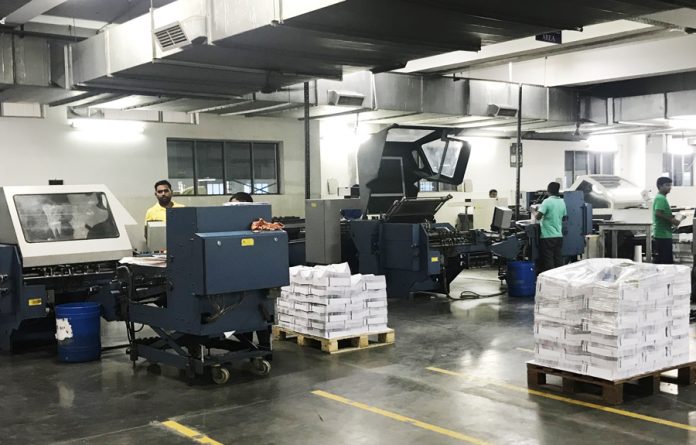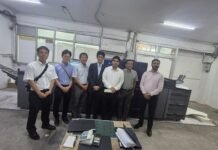Replika Press primarily prints books, mostly for international publishers. Its clients are in the UK, some of the European nations, South Africa, Australia and New Zealand. A few years ago, the company decided to diversify from its book printing business to packaging. The main reason behind this was the reduced demand for print.
“The overall growth in the printing industry over the past few years has become stagnant and so has the hope of increase in the rates and better profit margins. Once we realized there is not much left for us printers, and we were being compelled to absorb the inputs which took a toll on our profits, we decided to diversify,” says Bhuvnesh Seth, managing director of Replika Press.
He further explains, “We entered into packaging observing its increasing potential. Packaging, as we all know, has been improving over the years. It has a promising future in the country and hence we decided to give it a shot. The main difference is that in book printing, everybody knows Replika by the brand that we have managed to create over the years, and they are also aware of our quality standards. However in packaging, where we have to compete with the industry majors, it is a different ball game altogether. However, the growth rate in case of packaging is higher. I think it will take another 4 to 5 years for us to make our mark and consolidate in the packaging segment.”
Book printing growth flat
Replika has a presence in the book printing industry for more than 20 years. In 2014, the company recorded 21% growth; following it, demand took a hit and the figures started reducing year after year. In 2018, the company recorded just 7% growth. Like every other printing company, Replika too is badly affected by fluctuating and rising paper prices. Paper prices in India have increased eight times in the last one year alone. The customer pays for the increased paper prices if it is mentioned in the contract, else, it is the printer who has to bear the loss which is the case most often, according to Seth. “Publishers sign contracts with us on an annual basis. There, it is difficult to predict the scenario. So, more often than not, it is we who bear the loss.”
Replika has a total of 14 sheetfed offset presses, 3 digital presses, 2 perfect binding machines, 6 automated section sewing machines and 1 automated hard cover machine. Out of the total production, 96% is from the company’s offset section which is entirely exported to other countries, 4% production share goes to digital, of which a very low percentage is exported and the major volume is used to supply the local market. The company uses digital presses mostly for short-run jobs or making samples and advance copies.
Need for innovative solutions in competitive atmosphere
The annual turnover of Replika is between Rs. 150 and Rs. 200 crore and it looks to integrate its offset printing capacity and automation capacity. “The export demand over the years has reduced. We are being forced to bear high input costs and the print runs have gone down. The competition in the market has taken a turn for the worse and it is difficult to survive in the market as a traditional printer. One has to look beyond the traditional practices and innovate or offer more and better solutions to the customer to survive in the market. Overall, the demand for books in India is not going to die soon. Digital is yet to take over. So, we’re hopeful of better demand in the coming days. Though the profit margins are trimmed, one never knows what’s on offer in future,” Seth concludes.


















